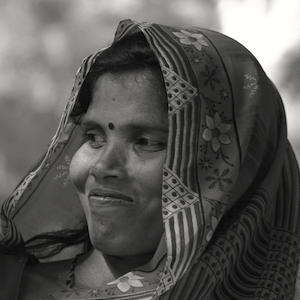Contextualizing motherhood in persons with borderline personality vulnerabilities: cultural adaptation of the Parent Development Interview-Revised in an Indian context

Published: February 3, 2023
Abstract Views: 1690
PDF: 447
HTML: 19
HTML: 19
Publisher's note
All claims expressed in this article are solely those of the authors and do not necessarily represent those of their affiliated organizations, or those of the publisher, the editors and the reviewers. Any product that may be evaluated in this article or claim that may be made by its manufacturer is not guaranteed or endorsed by the publisher.
All claims expressed in this article are solely those of the authors and do not necessarily represent those of their affiliated organizations, or those of the publisher, the editors and the reviewers. Any product that may be evaluated in this article or claim that may be made by its manufacturer is not guaranteed or endorsed by the publisher.
Similar Articles
- Saryn R. Levy, Mark J. Hilsenroth, Francine Conway, Jesse Owen, Patient personality characteristics and therapeutic integration: treating borderline personality and emotionally dysregulated-dysphoric personality features , Research in Psychotherapy: Psychopathology, Process and Outcome: Vol. 25 No. 2 (2022)
- Annalisa Tanzilli, Flavia Fiorentino, Marianna Liotti, Gabriele Lo Buglio, Ivan Gualco, Vittorio Lingiardi, Carla Sharp, Riccardo Williams , Patient personality and therapist responses in the psychotherapy of adolescents with depressive disorders: toward the Psychodynamic Diagnostic Manual - third edition , Research in Psychotherapy: Psychopathology, Process and Outcome: Vol. 27 No. 1 (2024)
- Alexandro Fortunato, Annalisa Tanzilli, Vittorio Lingiardi, Anna Maria Speranza, Psychodiagnostic Chart-Child (PDC-C): a valid and clinically sensitive diagnostic tool for patient-tailored intervention planning , Research in Psychotherapy: Psychopathology, Process and Outcome: Vol. 25 No. 1 (2022)
- Samantha Reis, Emily L. Matthews, Brin F.S. Grenyer, Characteristics of effective online interventions: implications for adolescents with personality disorder during a global pandemic , Research in Psychotherapy: Psychopathology, Process and Outcome: Vol. 23 No. 3 (2020)
- Osmano Oasi, Laura Buonarrivo, Alberto Codazzi, Margherita Passalacqua, Gio Matteo Risso Ricci, Francesca Straccamore, Roberto Bezzi, Assessing personality change with Blatt's anaclitic and introjective configurations and Shedler-Westen Assessment Procedure profiles: two case studies in psychodynamic treatment , Research in Psychotherapy: Psychopathology, Process and Outcome: Vol. 20 No. 1 (2017)
- Nicola Carone, Ilaria Maria Antonietta Benzi, Laura Muzi, Laura Antonia Lucia Parolin, Andrea Fontana, Problematic internet use in emerging adulthood to escape from maternal helicopter parenting: defensive functioning as a mediating mechanism , Research in Psychotherapy: Psychopathology, Process and Outcome: Vol. 26 No. 3 (2023)
- John S. Auerbach, The contributions of Sidney J. Blatt: a personal and intellectual biography , Research in Psychotherapy: Psychopathology, Process and Outcome: Vol. 20 No. 1 (2017)
- Aija de Starceva-Apele, Malgozata Rascevska, Reliability and factorial validity of long and brief versions of the inventory of personality organization in a Latvian sample , Research in Psychotherapy: Psychopathology, Process and Outcome: Vol. 25 No. 2 (2022)
- Vittorio Lingiardi, Nancy McWilliams, Laura Muzi, The contribution of Sidney Blatt's two-polarities model to the Psychodynamic Diagnostic Manual , Research in Psychotherapy: Psychopathology, Process and Outcome: Vol. 20 No. 1 (2017)
- Fabiola Bizzi, Francesca Locati, Laura Parolin, Shmueli Goetz Yael, Emanuela Brusadelli, Advancement in the child attachment interview and the child and adolescent reflective functioning scale using a PDM-2 framework: case reports , Research in Psychotherapy: Psychopathology, Process and Outcome: Vol. 25 No. 1 (2022)
You may also start an advanced similarity search for this article.

 https://doi.org/10.4081/ripppo.2023.675
https://doi.org/10.4081/ripppo.2023.675





